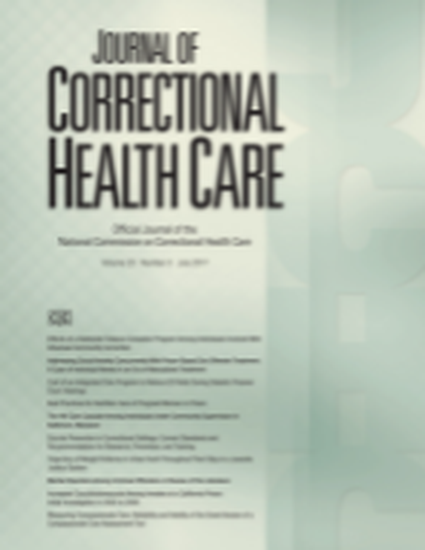
Article
Best Practices for Nutrition Care of Pregnant Women in Prison
Journal of Correctional Health Care
(2017)
Abstract
Approximately 3% to 4% of women are pregnant upon their admission to prison. Pregnant inmates present unique challenges for correctional health providers, including meeting the nutritional needs for healthy pregnancy outcomes. The authors outline six recommendations for nutrition care for pregnant inmates, including (1) test for pregnancy; (2) prescribe prenatal vitamins; (3) follow nutrition recommendations outlined by the Academy of Nutrition and Dietetics; (4) provide additional food, monitor over time, and allow for modifications to meet pregnancy needs; (5) ensure regular access to water; and (6) provide inmates with resources and education on healthy diet. The degree to which correctional facilities address the nutritional needs of pregnant women may have short- and long-term consequences for the health of women and their offspring.
Keywords
- female inmates,
- pregnancy,
- women’s health,
- nutrition,
- correctional health care
Disciplines
Publication Date
July, 2017
DOI
https://doi.org/10.1177/1078345817716567
Citation Information
Rebecca J. Shlafer, Jamie Stang, Danielle H. Dallaire, Catherine Forestell, et al.. "Best Practices for Nutrition Care of Pregnant Women in Prison" Journal of Correctional Health Care Vol. 23 Iss. 3 (2017) p. 297 - 304 ISSN: 10783458 Available at: http://works.bepress.com/catherine-forestell/3/
